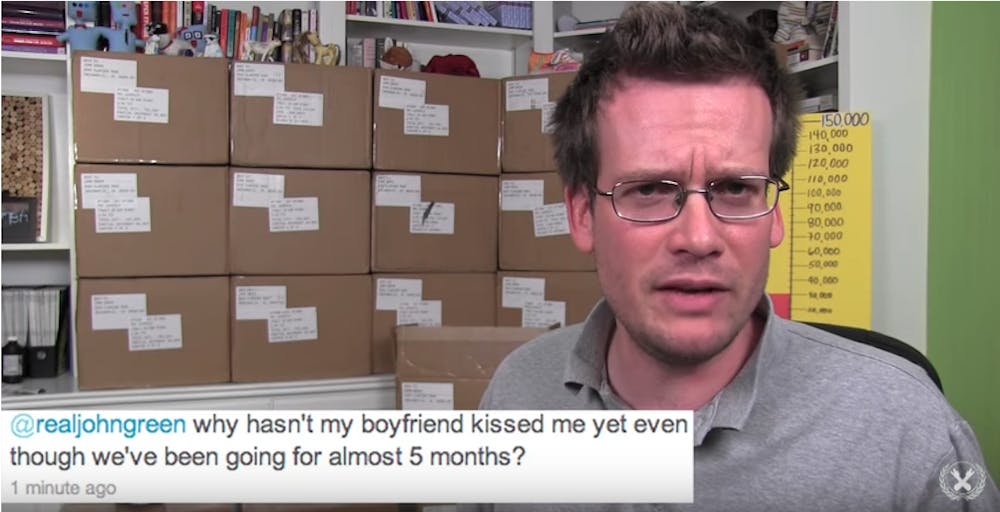Swiping left or right is the modern equivalent of a folded-up sheet of notebook paper with the message, "Do you like me? Check yes or no." You know a little bit about a person and what they look like, and somehow in that moment you're supposed to decide if the person is worthy of your attention and time.
But this isn't an indictment of internet dating, in all its many forms. Novelist John Green met his first serious girlfriend over the internet in the 1990s, right at the start of the online-dating phenomenon. Hunter Hill, a comedian from Los Angeles, met his fiancée on Tinder. My father and stepmother met online. My older brother met his girlfriend, who lives in Indonesia, on OkCupid, and they've been together for nearly two years.
Internet dating, like many non-romantic online communities, is a wonderful thing that allows us to connect with people that we wouldn't have met otherwise. When I studied abroad, I went on a Tinder date with a guy from New Zealand who did theater sound tech and had hung out with the cast of "Wicked." It was a lovely afternoon.
My issue is not with people meeting via digital means, but instead with the effect I think it's having on our attitude towards dating as a whole. Casual dating is a thing of the past, or at least it's rapidly becoming that way. "Dating" no longer means spending time with someone in a way that gives you space to decide if you want things to be more serious. "Dating" connotes commitment and exclusivity. We no longer have a concept for getting to know someone in a casual, yet romantic light.
Social media and technology are largely responsible for the shift, because it's so easy for everyone you're connected with to know what you're doing. It's really easy for you — or your friends — to know what the person you went on a date with last week is doing. With cameras everywhere, and countless eyes watching all those cameras, keeping your dating life personal is difficult. Sharing your fun experiences — dates, nights out, nights in — is tempting, and I don't think it's wrong to share your life if you want to. But say you're casually seeing two people, and one of them sees a Snapchat or Instagram story of the great sushi you got with the other one, and suddenly you're in an awkward situation.
I'm basing this next claim on many episodes of "Friends" and "Gilmore Girls," but in the past, it wouldn't have been unusual or unacceptable to be going out with multiple people until you had decided with another person, in a considered and mature conversation, that you were exclusive. These days, that talk comes up much more quickly than it used to, not only because of the publicity of our lives, but also because of constant connectivity. It's dangerously easy for us to be in touch with each other at any given moment, which leads to over-analysis and hurt feelings if someone isn't communicating as much as you think they should.
Here's the deal: It's okay if you don't know in the first 15 seconds or 15 days or even 15 weeks whether or not someone is right for you. It's possible to spend time with more than one person in a romantic way and have legitimate feelings for both or all of them. Dating should be fun and shareable, which means that any amount of commitment or responsibility to another person should come from a conversation.
Our biggest responsibility in relationships, casual or serious, is to be honest and kind. You can't rush those things.

